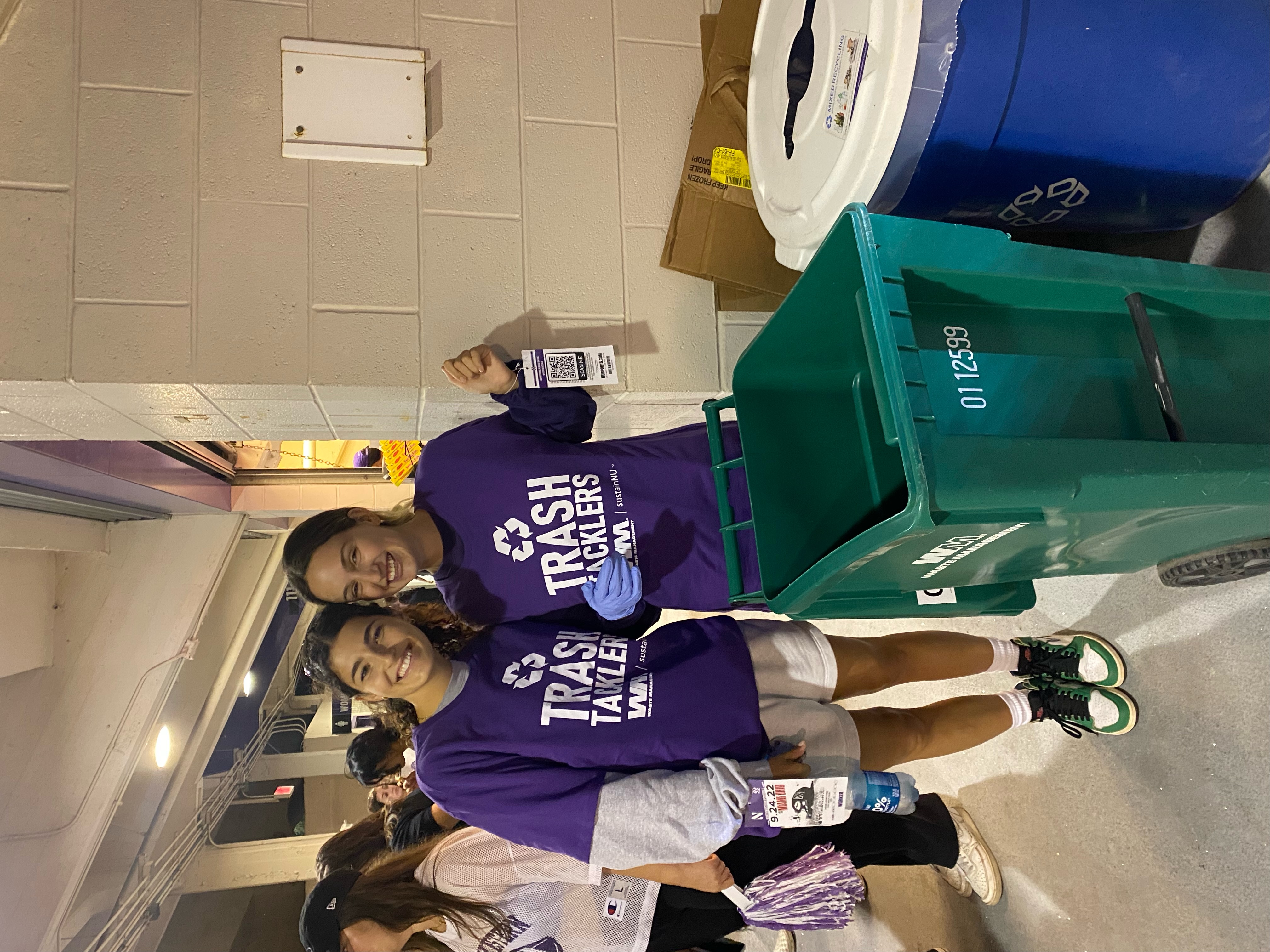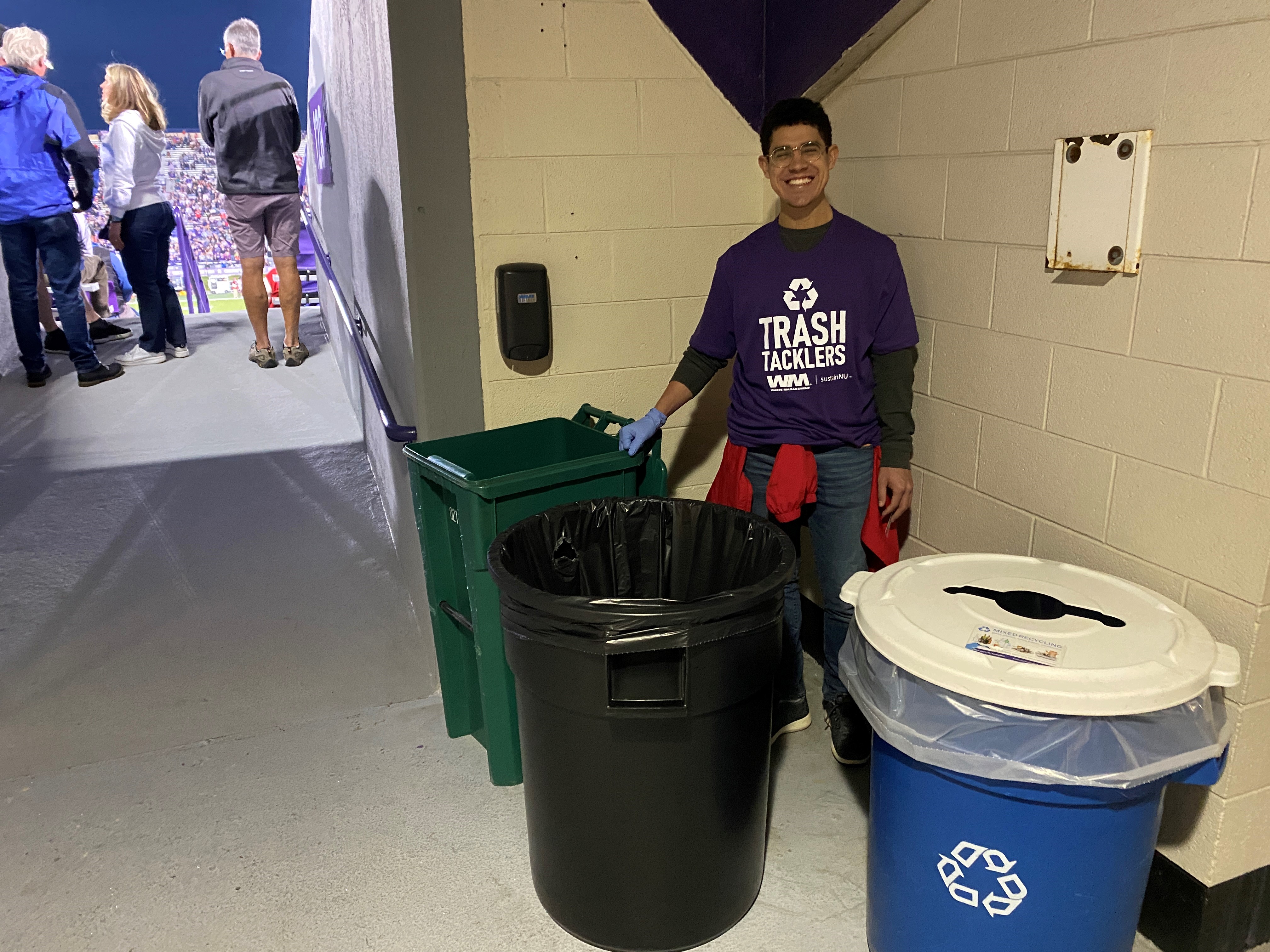Zero Waste Ryan Field Pilot
At the September 24th football game versus Miami of Ohio, Northwestern’s Associated Student Government (ASG) Sustainability Committee partnered with sustainNU to pilot a “zero waste” football game, testing the concept of having fan-facing compost collection bins in Ryan Field. A zero-waste event is one in which at least 90% of the waste is diverted from landfills through recycling or composting. When we think about zero waste, we first consider reducing the production of waste in the first place. One example is in dining halls where the reusable OZZI container has replaced many disposable to-go containers. At an athletic stadium, however, reusables are not as feasible, so composting can play a significant role as a complement to recycling collections.

The ASG Sustainability Committee (SusComm) worked with Northwestern Athletics to select a game for the pilot, as well as with sustainNU to source bins and determine a layout for collection stations. They also recruited volunteer “Trash Tacklers” to staff the collection stations, helping fans correctly dispose of their waste.
Currently, few serving wares used in the stadium are acceptable for composting, so the target of these collections was actual food waste. Fortunately, fans tend to consume the food they buy, leaving little food “waste.” The Trash Tacklers also helped assure recycling collections were uncontaminated, informing fans as to which items were recyclable. Volunteers enjoyed interacting with fans who welcomed the opportunity to better understand managing their waste more responsibly.
The SusComm team and Trash Tacklers learned a lot about how to engage fans in properly sorting waste. They identified the need for better signage on the bins and throughout the stadium to help with this education.

While there is a long way to go to get to zero waste at Ryan Field, much was learned from this pilot that will inform progress in the future. Students took away an understanding of the logistics of stadium operations and waste collection, the need for education around proper waste disposal, as well as volunteer support needed for future games. ASG SusComm will be working with Athletics and the concessions vendor to identify compostable serving ware options to increase the number of materials that can be composted during athletic events.
Northwestern established its food waste composting program in 2012. Food waste is diverted for composting in Evanston campus dining halls, Norris, Kellogg Market, Nona Jo’s, the Allen Center, and Chicago campus dining operations. Additionally, Northwestern composts landscape waste generated in the maintenance of campus grounds.